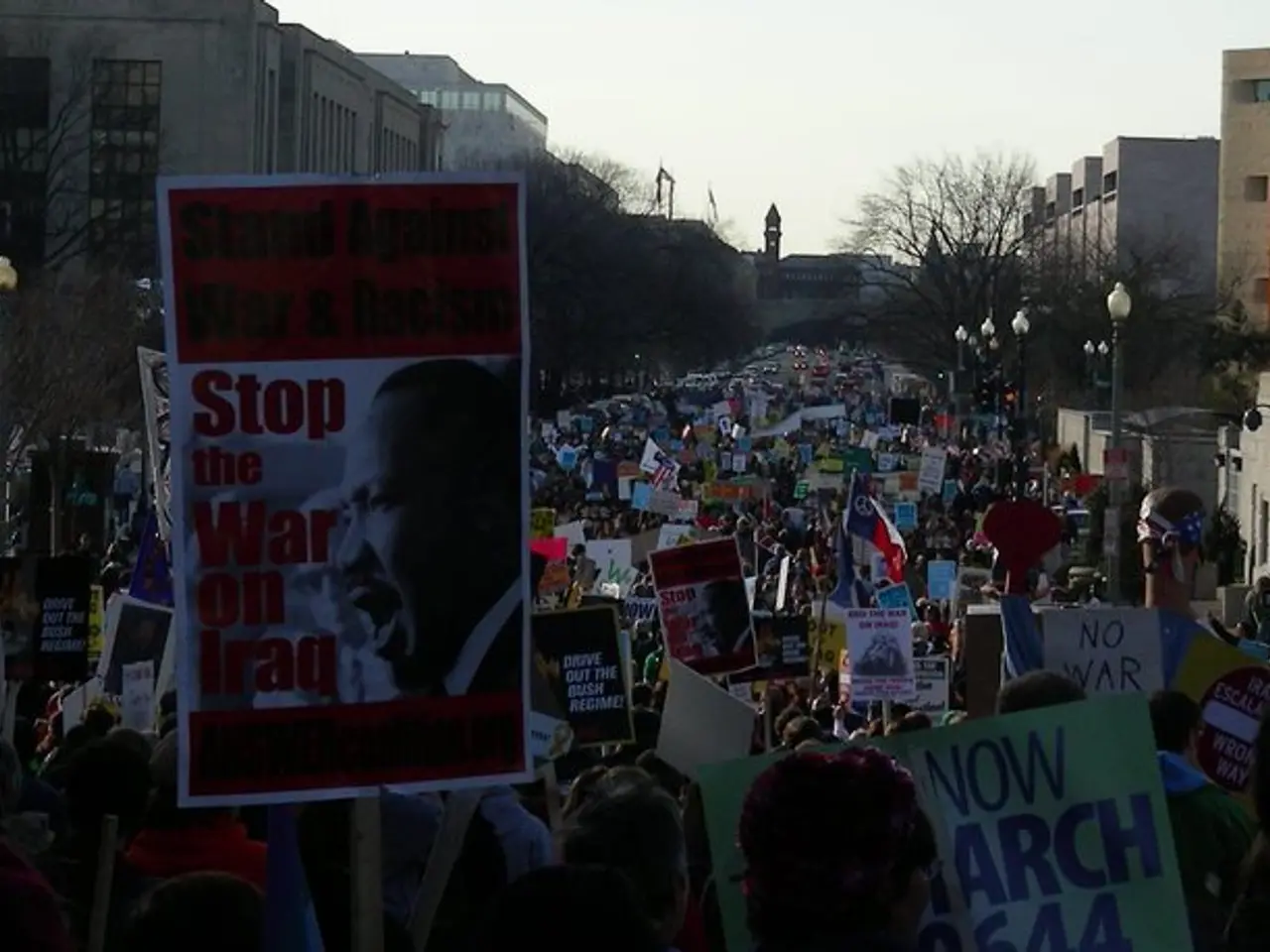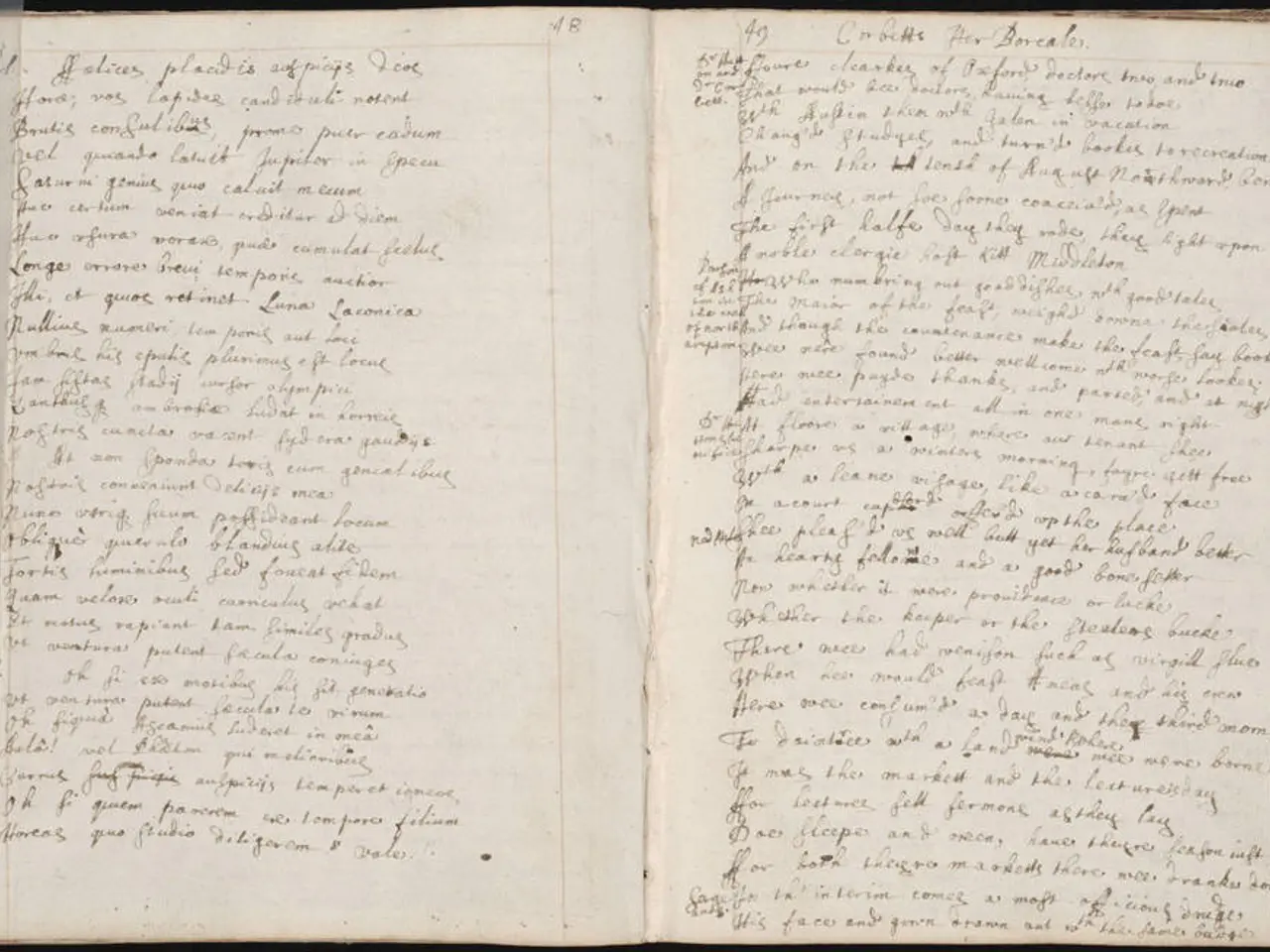Deepening Crisis in Thailand: PM Paetongtarn Faces Decisive Test as Situation Escalates
Thai Government on a Knife's Edge: The Unraveling of Paetongtarn Shinawatra's Admin
38-year-old Paetongtarn Shinawatra, Thailand's youngest leader, finds herself at the helm of a government on the brink of collapse. The daughter of Thaksin Shinawatra, whose two-decade-long power struggle with the royalist establishment has often thrown the country into political chaos, Paetongtarn now faces her toughest challenge yet.
The comeback of Thaksin from self-exile in 2023 played a crucial role in forming a fragile coalition between his Pheu Thai party and former rivals, aimed at preventing the progressive Move Forward Party from gaining power despite its impressive election victory. However, this alliance is showing signs of disintegration, and old rivalries are rearing their heads.
Recently, a leaked phone call involving Prime Minister Paetongtarn and Cambodian Senate President Hun Sen has sent shockwaves across the country. The conversation exposed Paetongtarn criticizing Lieutenant General Boonsin Padklang, the Thai military commander for the border area, which has eroded her credibility.
The call, condemned as a trust-undermining move by Thai authorities, caused immediate fallout. The conservative Bhumjaithai Party, once a coalition partner, pulled out citing the call as the reason. The Bhumjaithai leader even called for a no-confidence vote against Paetongtarn’s government. Other coalition partners, such as the United Thai Nation Party, are demanding her resignation.
With the Bhumjaithai Party's exit, the governing coalition now has a wafer-thin majority in the 500-seat lower house, holding 260 seats, a significant weakening of Paetongtarn's position. The opposition People's Party (successor to the dissolved Move Forward Party) is urging for the dissolution of parliament and snap elections to resolve the crisis.
The military, with a history of politically intervening through coups, has shown signs of discontent with the civilian government's handling of the situation. In such a tense political climate, a coup is a real possibility. The army chief has called for unity and trust in the military to uphold democracy, while Paetongtarn has tried to ease fears of a power struggle by emphasizing government and military unity.
As the crisis remains unresolved, the possibilities include a no-confidence vote leading to the government's collapse, new elections if the government falls, or military intervention citing political instability as justification. In a nutshell, the leaked phone call has dealt a severe blow to Prime Minister Paetongtarn Shinawatra’s government, leading to the alienation of key coalition partners, calls for her resignation, and a no-confidence vote, potentially ending in a coup, leaving Thailand on edge.
- The leaked phone call between Prime Minister Paetongtarn Shinawatra and Cambodian Senate President Hun Sen has sparked controversy in Thailand's political landscape, raising concerns about the stability of the military-civilian relationship and the potential for war-and-conflicts, given the military's history of political intervention.
- As the government led by Paetongtarn appears to be on the verge of collapse, the latest political developments have shifted focus towards the role of military in politics, as the military's discontent with the civilian government is evident, and the possibility of a power struggle or a military coup looms large, a trend often observed in the context of war-and-conflicts and general-news.





